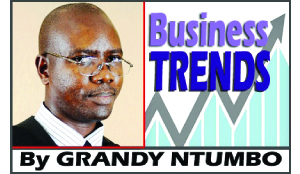 BUSINESS consultants can create additional value for a consultancy client.
BUSINESS consultants can create additional value for a consultancy client.
To discuss this subject, it is important to revisit the definition of who a consultant is.
Renowned business consultant, Dr Alan Weis, of United States of America, defines a consultant as someone who creates a value proposition to a client business through specialised expertise, content, behaviour, skill and other resources to enable a client organisation to improve the status quo in return for mutually agreed- upon compensation.
For our discussion, we will focus on one aspect of the definition: The creation of a value proposition by the consultant.
There are two divergent views that exist on the work of a business consultant.
There is a general view that business managers are high-level management executives who surely know more about the business at hand than management consultants.
Additionally, there is yet another assumption that a management consultant could have some expertise in addition to that held by the client management.
Both assertions are valid but the truth lies in the middle.
A business manager certainly knows what he or she wants while the business consultant knows what the client needs.
To illustrate this point, there is need to look at the value proposition that was created with the invention of the automobile.
Henry Ford, the founder of Ford Motor Company, once said, “If I had asked people what they wanted, they would have said, faster horses”.
As we have seen, an additional hand could turn our fortunes around forever!
The horse riders knew what they wanted: faster horses, but Mr Ford knew that there could never be born any faster horses apart from making a breakthrough invention, the automobile!
A consultant bridges the gap between the client’s wants and his or her needs.
The value so created is measured and translated into units such as cost reductions, profit or earnings per share etc.
Let us take an example of a large retailer like Shoprite Stores deciding to hire a management consultant.
It will certainly not be the first large retailer to hire out this consultant.
He or she may have worked on such similar businesses before and has had access to information that is unobtainable anywhere else as regards business, competition, the economy and strategies being used.
Management consultants also use diverse business models to hire other consultants in the trade to work alongside them in consultancy projects.
They also hand pick professionals who have experience in client industries to build a concentrated subject- matter expertise in the industry.
Many people may not be great at spotting their weaknesses and strengths and may need an additional expert eye to give a hand.
Industry experts can read early signals of industry competition and the state of the individual firms and their products.
In the process of, for example, industry product reviews and client industry analysis, up to a point, the manager feels strained and stressed.
At such a point in time, you need a fresh set of eyes, talent and abilities from other industry experts to help you see what you cannot ordinarily see in the course of running your companies.
One of the recent global trends in business consulting has been the advent of scale-up crowd consulting communities.
This networking technology allows various firms that are clients of for instance a consulting firm in the United Kingdom (UK) to seek a business solution from their consultant through the consulting communities.
The client’s respective consultant may not be able to devise a solution for that client but may refer the issue to a Zambian consultant on the community to attend to the client.
The local consultant can craft a business strategy solution for the client, without the client knowing where the solution has been devised from.
To borrow an analogy from the medical profession, I once needed a doctor to attend to my patient in a life-threatening situation.
Amazingly, all the doctors who were available with the particular specialisation were tied to one patient in the other hospital because the doctor on duty needed a second opinion from his supervisor and the supervisor had also to seek a third line opinion.
This level of quality assurance is also evident in the business consultancy practice.
In conclusion, it is clear that there is a gap between a business manager’s wants and his/her needs.
The business consultant creates value proposition by filling the gap.
For comments e-mail:ntumbograndy@yahoo.com mobile +260977403113, +260955403113
(The author is the Managing Consultant at GN Grant Business Consultant, a fellow of the Association of Chartered Certified Accountants (ACCA), a Master of Business Administration (MBA) holder and a candidate for the Herriot Watt University (Scotland) Doctor of Business Administration)






